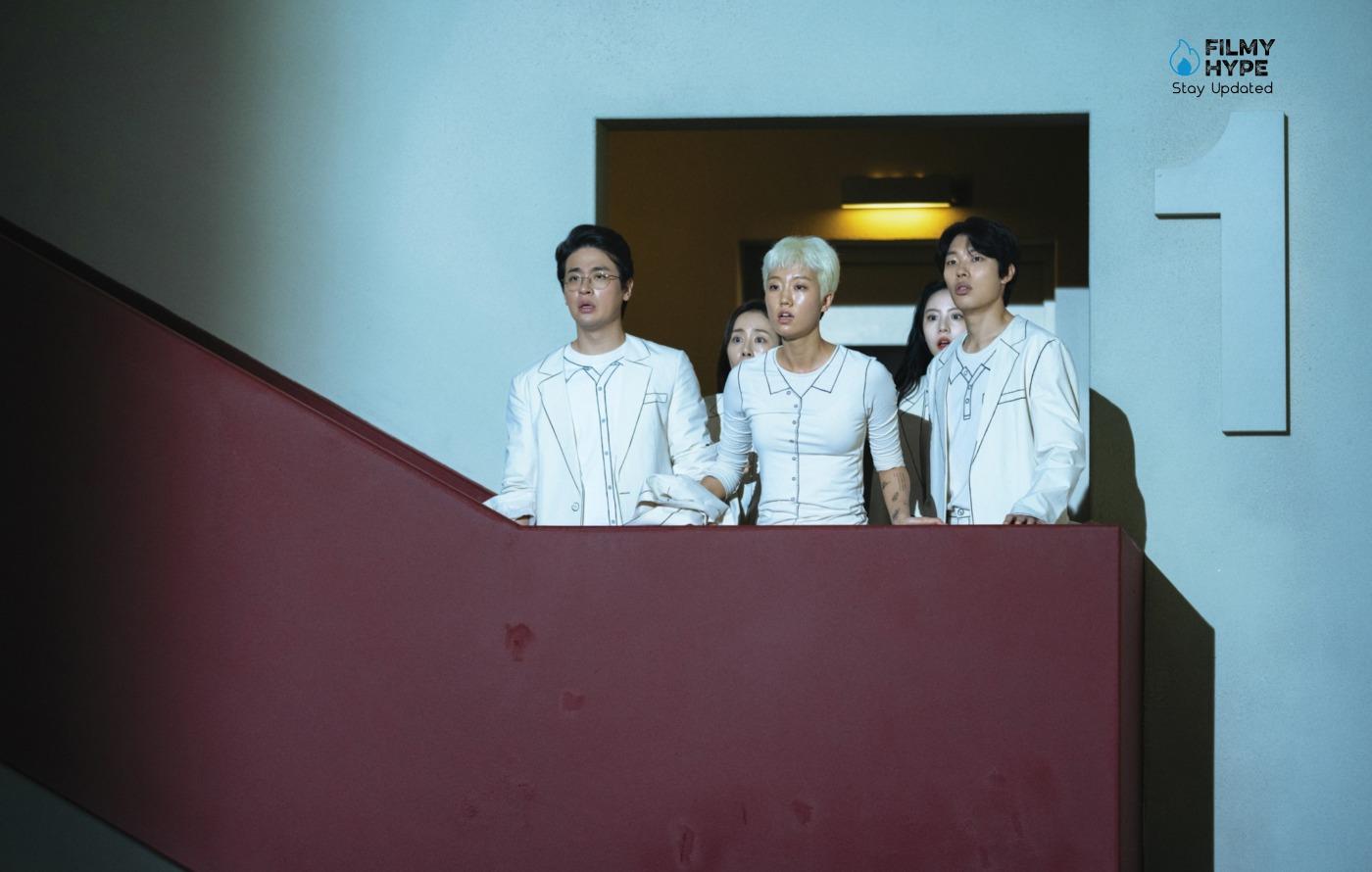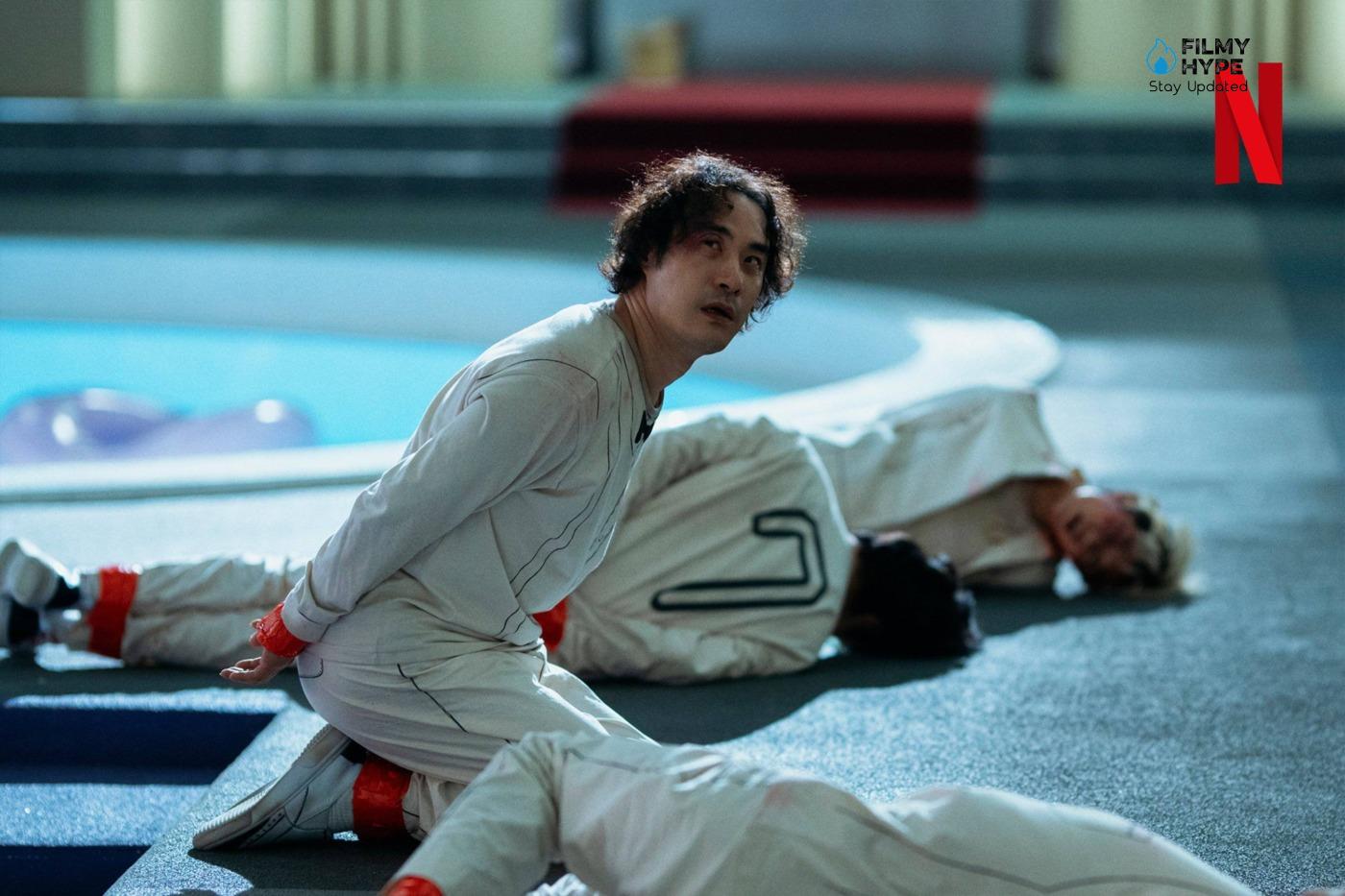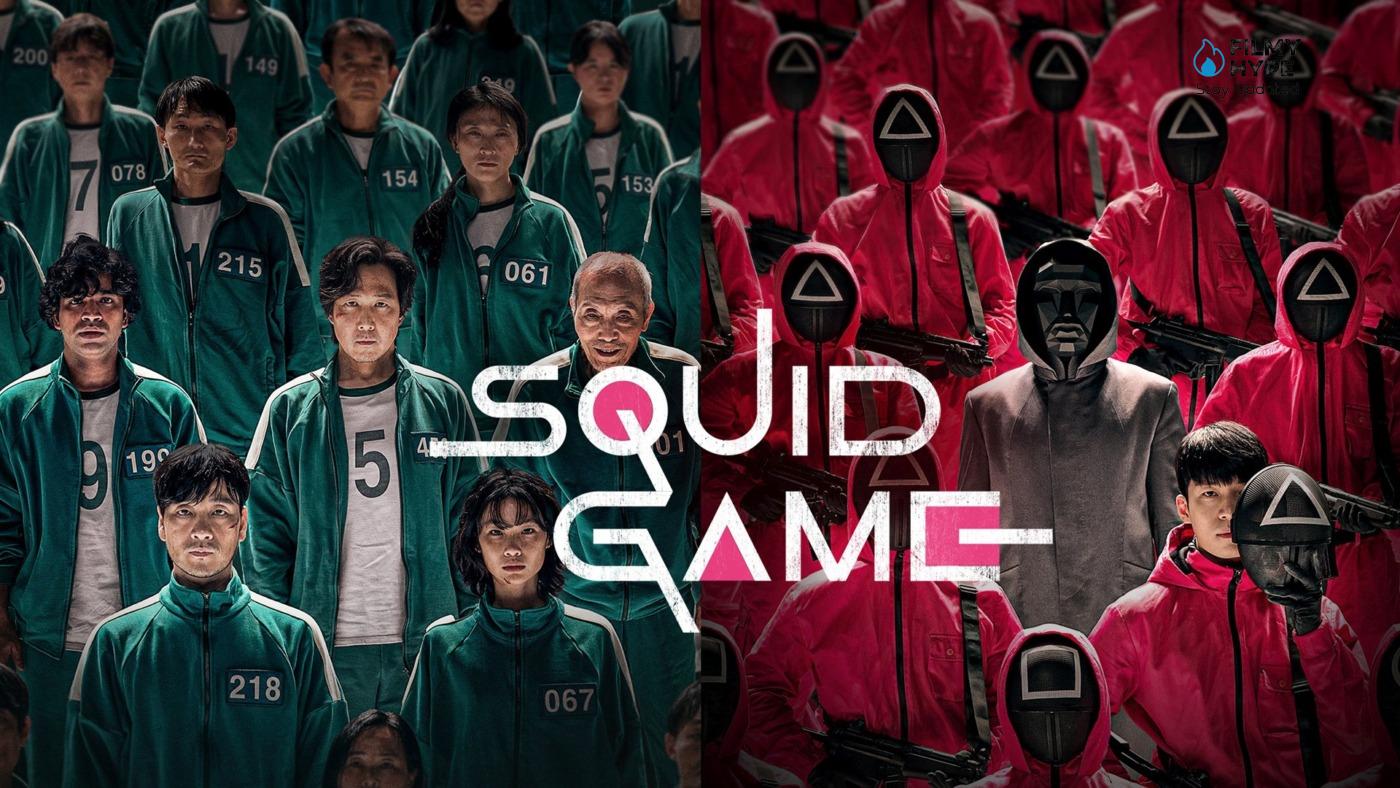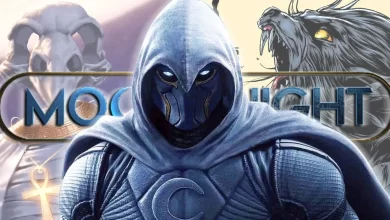The 8 Show vs Squid Game: Two Opposite but Complementary Endings
The similarities between Squid Game and The 8 Show are many and undeniable. Even before its release on Netflix, the public had fun discovering what the two series have in common, which first and foremost explore the theme of survival through game shows, using violence to criticize society in a gaming context. Both series strip contestants of their identities through uniforms and numbers, highlighting economic disparities. These series expose capitalism and class inequality through competitions that exploit participants for their entertainment value. Despite the similarity, The 8 Show and Squid Game are not copies of each other. The 8 Show is a K-drama based on web-toon and inspired by Bae Jin-su’s Money Game and Pie Game, released on Naver in 2018 and 2020. Squid Game, on the other hand, is a Netflix original created by Hwang Dong-hyuk and first released on Netflix in 2021.

The 8 Show and Squid Game What do the Two Netflix Series Have in Common?
However, the similarities between the two shows further strengthen their social criticisms and make The 8 Show the perfect “substitute” for Squid Game. When a new TV series arrives, especially on the platform and especially on Netflix, it is almost natural to make a comparison with some titles from the past. Especially if they are hits, of which the streaming service is desperately looking for heirs or similar. So with the arrival of The 8 Show on the streaming giant, it was impossible not to think of Squid Game and Alice in Borderland (we also talked about them in our review). However, there are substantial differences, including the ending which we talk about on this occasion in more depth, also using it as a recap of the previous episodes given the new season and – obviously – with some spoilers, so be careful if you continue reading! You have been advised of the rules, just like the participants in the games…
Squid Game: A Heart-Pounding Finale
In the finale of Squid Game – the second season is expected for December 2024, so this article is also useful as a refresher – the protagonist from whom we followed the story through his ongoing thoughts (already a first point in common with The 8 Show) Seong Gi-hun (Lee Jung-jae) meets his destiny. He is number 456 of the participants in the title game, the last on the list who will become, incredibly and due to a series of circumstances dictated by chance and luck as well as tenacity and resilience, the winner. The last “level” – the Squid Game, which gives the Netflix series its title – brings the man face to face with his childhood friend, Cho Sang-woo (Park Hae-soo) who has always been distinguished in his studies and life compared to the “foolish and incompetent” protagonist but ended up in his own “hell on Earth” due to the debts accumulated due to investment fraud.
The two fight until the end, like when they were little, and surprisingly Seong Gi-hun gets the upper hand but decides to spare his friend by giving up the prize money accumulated from the deaths of all the previous players if they both vote (the majority) to leave from the game. Cho Sang-woo, however, prefers to kill himself and get it over with. The protagonist is abandoned by a car in the middle of the road and discovers that he has not lived a dream and that he has earned all that money now in his account. At what price? The moral dilemma that has persecuted man since the first episode.

A year later we understand that Seong Gi-hun has not stopped living as before and left all the money, without ever touching it, in the bank. He is called by one of his savings account managers for this very anomaly, failing to justify and instead asking for some change for the day; shortly after, he buys a flower from a street vendor only to find in his hands a ticket like the ones in the game that invite him to a date in a large glassed-in building in the center. Having gone there at the described time, he finds none other than Oh Il-nam (Oh Yeong-su) dying on a hospital bed, thus discovering that he is not the only survivor of the game. The old man really had that name and was ill, but he lied about the rest: with some rich friends he decided to create the equivalent of horse racing but with people instead of horses, and later he wanted to participate in the games they had created in first person because “it wouldn’t be as fun to just watch”.
After all, he never really forced anyone to participate and, above all, to return to the game after the initial setback between the first and second episodes. He was the mysterious Presenter with the cat mask, who had not wanted to participate in the voyeurism of the last two games for precisely the reason just mentioned. The protagonist and the old man have one last match but, at the stroke of midnight, the former wins and would like to kill him for everything he has done to them, but the old man still dies a natural death. The Frontman also arrives at his bedside, who we discover is none other than the older brother of the policeman Hwang Jun-ho (Wi Ha-Joon), who has been missing for years because he was recruited by the Squid Game Squid Game. Does the adventure end at this point?
No, as the last sequence suggests. After having donated the money of the deceased to their families, at least those he knew and to whom he had promised to take care of it, having recovered a relationship with his daughter, and having settled down, Seong Gi-hun is about to board a flight at the airport but sees the man who had engaged him more than a year earlier in the subway station. At that point he retrieves the ticket and calls the overwritten number, telling the old man’s organizer friends that he is not a horse but a human being. The voice on the phone tells him that he should take the plane if he doesn’t want there to be terrible consequences.
The 8 Show: An Anticlimactic Ending
Unlike Squid Game, The 8 Show is based on the webtoon of the same name and on the opposite assumption to participate in the program which becomes a massacre game: if any of the participants dies, the game ends, and the others lose the prize money. A series of tests (self-created by the contestants in this case) also led them to resort to violence and torture to entertain – “entertain” as the old man from Squid Game said – the spectators behind the cameras that constantly film the House at the center of the show (as if it were Big Brother, a social experiment). Having reached the end, Floor 1 (Bae Seong-woo), the lowest and poorest of all within the program’s food chain, a mirror of our society, kills himself due to a short circuit in the flames after attempting one last crazy stunt – given his job as a Clown for his sick daughter forced to return home from the hospital due to insurance. Taken by the desperation of having lost a billion won (the goal he set himself at the beginning of the game) to change rooms and end up on the highest floor, reversing his social situation as a sign of redemption.
In reality, he discovers that he can only purchase the instructions to change plans (the price for the actual leap is unattainable) and this also turns out to be a metaphor for society, where it is not possible to change one’s economic status so drastically except in exceptional circumstances. However, not even his death strangely seems to stop the program and the protagonist from whose point of view and narrative voice we followed the whole story, Plan 3 (Ryu Jun-yeol), realizes that the only way is to destroy all the cameras. If the public has nothing left to see, they will be forced to stop watching things go exactly like this, and here the survivors (who unfortunately fail to save Plan 1) return to real life, without having said almost anything about their lives, not even their names (compared to the Squid Game competitors who eventually make some confessions).

The audience itself finds out very little about their previous life in the last episode: Plan 8 (Chun Woo-hee) is a crazed performance artist, Plan 6 (Park Hae-Joon) is a disgraced former sports player, Plan 5 (Moon Jeong-Hee) is a woman who has been cheated by her husband, Floor 4 (Lee Yul-mum) a parking attendant at a shopping center who can’t command respect and Floor 2 (Lee Zoo-young) an angry worker.
Some time passes and Plan 3 seems unable to move on with his life until he gathers almost everyone for Plan 1’s funeral, leaving the portion of the prize money due to the family of the deceased. A gesture similar to that of Seong Gi-hun which in this case however sees the protagonists immediately using the money won, since the price to be paid was less at the expense of other human beings. The real inevitable plot twist, however, comes from Piano 7 (Park Jeong-min), given that compared to the other South Korean thriller and Alice in Borderland on the platform, we know nothing about the “minds” behind the game. Or almost: at the end, we see the true life of Piano 7, who couldn’t sell the idea of a book or screenplay, and therefore proposes what he experienced. Perhaps. The viewers – as always, in this meta-television game that is the two Netflix series – have an arduous decision.
What Do the Two Netflix Series Have in Common?
Squid Game and The 8 Show, which we told you about in our review, share numerous similarities, especially in their being survival programs. Both use violence to explore and critique economic inequality and capitalism, offering contestants the chance to win large cash prizes. In Squid Game, the last survivor is the sole winner who gets a fixed sum of 45.6 billion won, while all other contestants are eliminated. In The 8 Show, however, every contestant is a potential winner, but the amount of money earned depends on how long they survive and the choices made in the game. Contestants receive different amounts of money depending on the rules of the show and the plan chosen; for example, contestant “1” earns 10,000 won per minute, while “8” earns 340,000, which creates an economic disparity between participants.
Both shows strip contestants of their identities through the use of uniforms and numbers. In Squid Game, green uniforms and identification numbers deprive participants of their identity. Similarly, in The 8 Show, contestants wear white outfits with distinctive details and are identified only by their numbers, which also indicate their economic status in the game. Some contestants can buy new clothes, like the character “8”, which symbolizes his wealth compared to the others. Both series offer challenges that evoke childhood games to add an element of nostalgia. In Squid Game, games are set in settings reminiscent of childhood places, such as playgrounds, while in The 8 Show, the play area includes playground equipment and pretend sets to elicit a childlike sense of play.
Violence is a central element in Squid Game, where traditional children’s games are reinterpreted in cruel and deadly ways. In The 8 Show, violence is not initially part of the game, but contestants use it as a strategy to survive longer and earn more money, increasing the brutality as the game progresses. Both programs attract desperate, indebted participants, offering an illusion of financial salvation. Seong Gi-hun, the protagonist of Squid Game, is a former gambler drowning in debt, while “3” in The 8 Show, known in the real world as Bae Jin-su, struggles to make ends meet with odd jobs. Despite the cash prizes, the traumas suffered during the games make it impossible for the winners to use their riches without psychological consequences. In essence, Squid Game and The 8 Show are scathing critiques of capitalism and class inequality, exploiting their competitors to entertain audiences. Both series lure participants with the promise of wealth that could change their lives, only to trap them in deadly games under the gaze of wealthy viewers. A reality show was also made from Squid Game with real contestants, which you can stream, and in which an Italian, Lorenzo Nobilio, also took part.






